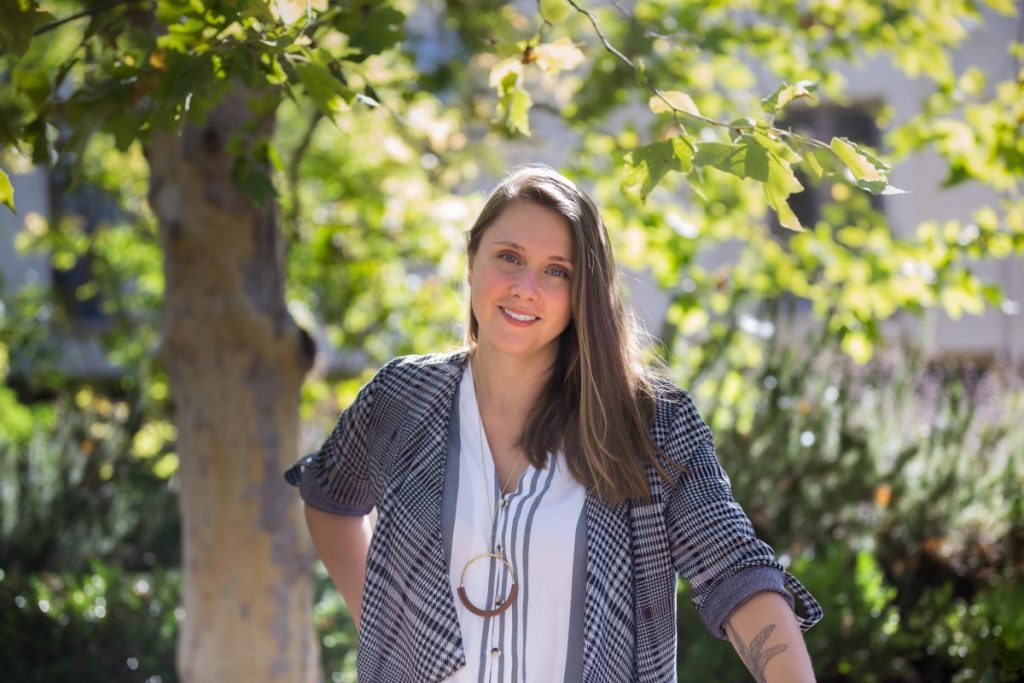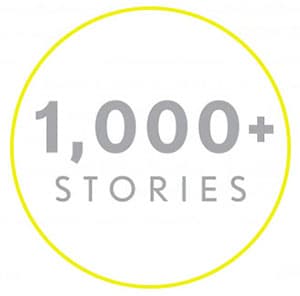
Suzanne Wylde had worked in the wellness industry for a number of years as an acupuncturist and trainer. But she kept noticing the same patterns over and over again with her clients – emotional problems would manifest as physical illness or pain – and when the emotional issues weren’t dealt with, the physical symptoms would persist. So she decided to become a certified coach and help take her client’s wellness to the next level through self development and holistic coaching. Today London, England-based Wylde is sure to make time for herself and her own journey of self-development as well as continuing to work on her books she writes in free time.
Wylde’s story, as told to The Story Exchange 1,000+ Stories Project:
What was your reason for starting your business?
I started working as a coach because I had worked as an acupuncturist and stretching trainer for years and I had seen certain patterns emerging. It seemed to me that if people were unhappy, unfulfilled or they had something within them they were not expressing, this often manifested as illness or physical tension. I wanted to shift my work to focus on helping people to address these root causes, rather than to just keep working on bopping symptoms on the head when they popped up, like playing whack-a-mole.
How do you define success?
Success for me personally is becoming the person I want to be – the person I know I can be. It is much more a way of being than an external goal. When I am coaching I have to put my version of success to one side so that I do not project my desire for this kind of success onto them. We all have unique personalities and different definitions of success, so ironically to be successful at my job as a coach I need to not think about my own version of success so I can focus completely on my client and their journey. But for me in a nutshell, success is still liking the person I am by the time I die and hopefully for most of the years leading up to that!
Tell us about your biggest success to date
One of my biggest successes is finishing the self-development book I wanted to write for over a decade. It is called The Art of Coming Home and it took me a year and a half to write (compared with 5 months for my first book). It is an evolving book due to the fact that I am usually engaged in some kind of self-development and learning of my own and as my understanding deepens I find that I want to tweak or add to what is in this guide so I’m currently working on a second edition.
What is your top challenge and how have you addressed it?
One of my top challenges is discrimination. I faced tons of positive discrimination as a “normal-level” alternative therapist as people seem to be much more comfortable with women in this setting. When I was studying Traditional Chinese medicine the ratio seemed to be around 8 women to 1 man in my class. Because clients often seem happier to be cared for and touched by a woman than a man, it was all good until I decided to level up a little.
When I started to do more I was surprised that a few people were very challenged by me. Of course I can’t say that it was always sexism, it could have just been pure rivalry, but there have been many times when people seemed keen on putting me in my place. This often took the form of people reaching out to ask me to meet, or to attend an event, while at the same time making a point of letting me know I was unimportant. Apparently this was not contradictory to them – that while it was obvious that I had influence and some kind of importance from the fact they were specifically asking me to come, they had no qualms about putting me down. It seemed they wanted to be affiliated with me while giving me no credit, and this has happened quite a few times mainly by men. But usually not really successful men.
I have been annoyed by this because I have a professional attitude and when I show up to work that’s just what I want to do – not deal with projections or be someone’s unconditionally-loving mother or servant. I just like to get to work. However, this has been enormously helpful in showing me where I should put my energy and who I should invest in.
I want to insert a caveat that I know discrimination can be hugely damaging and I don’t want to diminish anyone’s experience or struggle with it – especially as I have more freedom as I am self-employed. It is obviously important to stand up to it and make sure workplaces and all places are safe and open to all. Bearing that in mind, here is the positive I have decided to take away from my experience.
I like the fact that I am instantly pointed away from dead-ends where my talent would not be appreciated. I really like to apply my energy and resources to growth areas and this nourishes me. I also find that the most intelligent and successful people are often much more interested in ideas and collaboration than gender, race or age. So in a way, you may find that you are directed towards more successful and like-minded people, who would be better for your career and mental wellbeing in the long term.
Have you experienced any significant personal situations that have affected your business decisions?
As I am always engaged with my own personal development to differing degrees, there have been points on my journey where I have had to stop or limit my work with clients in order to focus on myself. This may seem very self-indulgent if you’re in a more traditional line of work, but as a therapist (in my case an alternative therapist) or coach, if you are in the middle of your own process it can be really hard to hold space for someone else.
I feel happy looking back that I took the time to do this because I do also feel the pressure from our society to be productive, working hard, earning – you know – all the things we’re meant to do in order to prove our value. But when you are passionate about self-development you realize your relationship with yourself has to transcend these transient states. You have to feel value even when you are not obviously adding value, or feel worthwhile even if your income is lower. You have to walk your talk basically, or you won’t be able to help many other people. Working on my way of being is baked into my career. In a way it is my qualification more than my actual certificates, so taking the time I need to work on it is essential.
I actually took a lot of time for myself during the pandemic and it has felt quite transformational. If I had not done this I would not feel as ready as I do now to support others and assist them in their own transformation and growth.
What is your biggest tip for other startup entrepreneurs?
I wish I had thought more about my target clients and also gotten really clear on what I wanted. And that is really hard when you’re starting because you often don’t have enough experience to really know what you definitely do and don’t want yet. So I would recommend on getting clear on two things which you should know even without a lot of experience: 1. Which people you like being around and why, 2. How you want to feel. The last one may seem a bit odd, but getting clear on how you want your work to make you feel will actually help you with a lot of decisions you are uncertain about, as well as helping to define your goals.
I’d also recommend not worrying too much about how others become successful, it’s much more likely that little bits of what works for different people will work for you, but that you’ll evolve a process and format that works well for your personality. So keep an open mind, keep learning and best of luck!!
How do you find inspiration on your darkest days?
Sometimes I try to reconnect with my deepest goals and remember how far I have already come and the good I have done. If it is a very dark day, however, I tend to connect to a higher force in a spiritual way. I know everyone has their own route to this, I am lucky in that it is a natural inclination for me and even on very bad days I can usually see at least a glimmer of light and that is enough until the next day.
Who is your most important role model?
My partner is my most important role model because he is extremely intelligent and he is open to listening to ideas from all people, equally. He’s also very supportive of women, but more than this, he actually appreciates the unique value we hold and has several female mentors. This quality seems quite rare to me because often people think they are not sexist when they are good at tolerating differences, however, they have not always learned to fully appreciate them. Women are still an underused resource in the workplace and I respect the fact my partner is doing his bit to open up the playing field and to keep it open and respectful.
Check out our Advice + Tips for entrepreneurs starting-up
Watch our latest videos
Subscribe to our podcast




